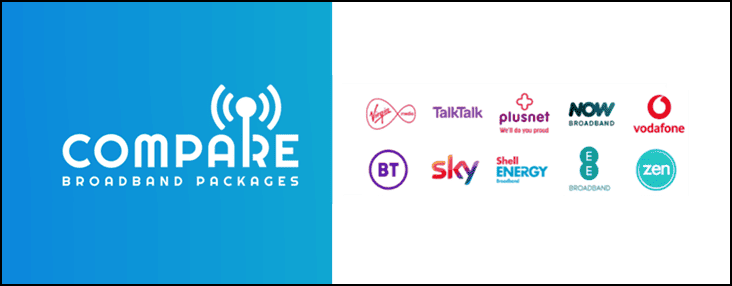
Have you ever settled in for a binge watching marathon, only to find your screen frozen in a perpetual spin? Or faced the frustration of a video call glitching mid presentation? If your internet seems to hit an invisible wall during peak hours, you’ve likely been hit with Broadband Fair Usage Policies limiting your browsing.
These policies, often buried in the fine print of your contract, exist to balance network demand among users. But while they’re designed to keep digital traffic flowing smoothly, their vague language and sudden speed throttling can leave even tech-savvy users baffled.
Fair Usage Policies act like digital traffic controllers, allocating bandwidth during congestion much like stoplights manage rush-hour gridlock. Without transparency, these safeguards can feel more like arbitrary speed bumps than tools for fairness.
In this article, we’ll untangle the complexities of these policies. How they work, why providers enforce them, and what they mean for your daily internet usage.
Key Takeaways
- Fair Usage Policies manage network traffic by limiting heavy users during peak hours (6 PM to 11 PM) to maintain stable speeds for all customers.
- Data usage varies greatly – HD streaming uses 3GB per hour while Standard Definition only uses 700MB. Smart scheduling of downloads between midnight and 6 AM helps avoid speed throttling.
- From 17 January 2025, Ofcom requires providers to show price rises in pounds and pence instead of percentages. This makes costs clearer for UK customers.
- Bandwidth throttling can drop internet speeds from 100Mbps to 10Mbps when users exceed limits. Most providers send warnings at 80% of monthly data allowance.
- Monthly data caps typically range from 100GB to 1TB, depending on your package. Breaking these limits leads to extra charges or reduced speeds.
What is a Broadband Fair Usage Policy?

A Fair Usage Policy sets rules for how much internet data you can use with your broadband service. I see it as a traffic control system that stops some users from taking up too much bandwidth at once.
Internet service providers create these policies to keep their networks running smoothly for everyone. Think of it as sharing a pizza – if one person takes all the slices, others go hungry.
The policy puts specific limits on things like downloading, streaming, and gaming during busy hours. Most broadband providers watch out for activities that might slow down the network for other customers.
They might reduce speeds for heavy users who go over their fair share of data. This helps stop network congestion and makes sure all customers get good service quality, especially during peak times.
Key Components of Fair Usage Policies
Fair Usage Policies have various rules that shape how you use the internet. I’ll break down the main parts of these policies, from data limits to network management tricks.
Bandwidth limits
I see bandwidth limits as a crucial part of broadband fair usage policies. Most internet providers set specific data limits for their customers each month. These limits range from 100GB to 1TB, depending on your chosen package.
The limits control how much data you can download or upload through activities like streaming, gaming, or browsing.
Your broadband speed might slow down if you go over these limits. Internet service providers use traffic shaping to manage network congestion during peak hours. This helps them maintain stable speeds for all users on the network.
Many providers send alerts when customers reach 80% of their monthly allowance. This keeps the network running smoothly and stops a small group of heavy users from affecting everyone’s internet experience.
Restrictions on excessive usage
Internet providers set limits on heavy data usage to keep the network running smoothly for everyone. These limits stop a small group of users from hogging all the bandwidth through activities like constant HD streaming or large file downloads.
My broadband provider, like many others, monitors data consumption patterns to spot excessive usage that might harm the network quality.
Fair usage keeps the digital highway clear for all travelers, not just the heavy haulers.
The rules about excessive usage appear clearly in the fair usage policy of most providers. Virgin Media, TalkTalk, and Plusnet track user activities to prevent network congestion during peak hours.

They might slow down connections or charge extra fees for users who repeatedly exceed normal usage patterns. The policy protects the network from strain while maintaining fair access to all customers.
Network traffic management
Network traffic management acts like a traffic warden for data, making sure no single user hogs all the bandwidth.
Traffic management keeps the network stable through clever data routing and speed controls. The system spots activities that put stress on the network, such as heavy peer-to-peer downloads or constant HD streaming.
Some providers slow down specific services during busy periods to stop the network from getting clogged up. This process, called throttling, helps maintain fair speeds for everyone on the network.
How Fair Usage Policies Differ from Data Caps
Fair Usage Policies (FUPs) work quite differently from data caps on broadband plans. Data caps set strict monthly limits on data usage, like a 500GB allowance. Once you hit this limit, your internet provider might charge extra fees or cut off your service.
FUPs take a more flexible approach by managing network traffic based on user behaviour rather than fixed limits.
My experience shows that FUPs focus more on maintaining network quality during peak hours rather than tracking total data use. Internet service providers use FUPs to slow down speeds for users who download large files or stream too much content at busy times.
This helps keep the network stable for everyone. Unlike data caps that reset monthly, FUPs adjust their restrictions based on real-time network demands and overall usage patterns.
Why Broadband Providers Implement Fair Usage Policies
Broadband providers must balance network resources between millions of users who share the same infrastructure. They set up fair usage rules to stop a small group of heavy users from slowing down speeds for everyone else, much like traffic lights control busy roads.
Ensuring network stability
Internet service providers need stable networks to serve millions of users who stream videos, play games, and work from home. Fair usage policies stop a small group of users from hogging all the bandwidth, which could slow down speeds for everyone else.
The rules in fair usage policies protect the quality of service for all customers. My internet provider uses traffic management tools to spot heavy users who might cause network congestion.
These tools work like smart traffic lights, giving priority to time-sensitive activities like video calls over less urgent tasks like file downloads. This balance keeps the network running smoothly for everyone, much like how road rules keep traffic flowing on busy streets.

Preventing disproportionate usage
I often see broadband providers taking steps to stop users from hogging too much bandwidth. Fair Usage Policies stop people from downloading massive files or streaming 4K videos non-stop.
This keeps the internet running smoothly for everyone on the network.
A fair internet is like a shared buffet – everyone gets their fill without one person taking all the food.
The rules target activities that eat up lots of data, such as torrenting or running servers from home. Internet service providers (ISPs) track usage patterns to spot heavy users who might slow down speeds for their neighbours.
Most providers send warnings before taking action through bandwidth throttling or extra charges. These policies protect the average user who checks email, browses social media, and streams videos at normal quality.
Supporting fair access for all users
Fair access rules help spread network resources across all broadband users. Most internet service providers set these rules to stop a small group of users from taking up too much bandwidth.
This keeps the network stable for everyone who wants to stream media, browse websites, or work from home.
This approach gives each customer a fair chance to enjoy smooth internet connections during peak hours without facing slowdowns or buffering issues.
How Fair Usage Policies Affect Consumers

Fair Usage Policies can hit your internet speed like a sudden traffic jam during rush hour. Your streaming quality might drop, and you’ll notice slower downloads during peak times, just like a crowded motorway slows everyone down.
Bandwidth throttling
I notice many broadband providers use bandwidth throttling as a key tool to manage network traffic. This practice slows down internet speeds for users who exceed their fair usage limits.
My research shows that providers must clearly state their throttling policies in their terms of service. Most UK providers now use traffic management systems to spot heavy users and apply speed restrictions automatically.
Potential additional charges
Going over your broadband fair usage limits can hit your wallet hard. Many internet service providers charge extra fees for data usage beyond the set limits. These charges can often pop up on your next bill.
The costs vary between providers, but they can add up fast if you stream lots of video content or download large files.
Limited access during peak hours
I notice many broadband users face slower speeds during peak hours, typically between 7 PM and 11 PM. Internet service providers use fair use policies to manage network traffic during these busy times.
Peak-time restrictions affect how you stream TV shows or play online games. The internet speed drops because too many people use the network at once. Fair use policies help spread the available bandwidth across all users.
Most providers send alerts before limiting speeds, which lets you plan my heavy downloads for off-peak hours.
Tips to Stay Within Fair Usage Limits
I’ll share some practical tips to manage your data usage wisely, from tracking your daily downloads to smart streaming choices that’ll keep you within your broadband limits – stick around to learn more about staying on top of your internet consumption!
Monitor data consumption
Smart data tracking starts with keeping tabs on daily habits. Your ISP should have a data tracking app, or dashboard, which sends alerts before reaching usage limits. Keep an eye on your usage to see that you don’t go over the limits
Optimise streaming quality
I recommend adjusting your streaming settings to stay within fair usage limits. Most streaming platforms like Netflix and YouTube offer different quality options that affect data usage.
HD streams use about 3GB per hour, while Standard Definition uses only 700MB per hour. Switching to a lower quality during peak hours helps manage data consumption without ruining your viewing experience.
Quick changes to your streaming habits can make a big difference in data usage. These small tweaks keep your internet usage smooth while staying within fair use policy limits.
Schedule downloads during off-peak hours
Off-peak hours offer the perfect time to schedule large downloads and updates. My broadband connection runs faster between midnight and 6 AM because fewer people use the internet. This timing helps me stay within fair usage limits and avoid network throttling.

Peak hours bring slower speeds due to high network traffic from 7 PM to 11 PM. Smart scheduling of system updates, game downloads, and software installations during quiet hours makes a big difference.
Consumer Rights and Fair Usage Policies
I know how vital it is for you to understand your rights as a broadband user. Fair Usage Policies must follow strict rules set by Ofcom, which protect you from unfair practices and hidden charges.
Transparency in terms and conditions
Broadband providers must spell out their terms clearly to customers. My research shows that fair usage policies need plain language that explains data limits and speed restrictions.
Internet service contracts should avoid legal jargon and complex terms. The acceptable use policy must outline what counts as proper network usage, including rules about copyright infringement and malware protection.
Fair usage terms need to state any traffic management practices that might affect speeds during peak hours. Clear terms help users make smart choices about their broadband service and avoid unexpected charges.
Protection under Ofcom regulations
I’m pleased about Ofcom’s new rules for UK mobile customers starting October 1, 2024. These rules protect users from surprise roaming charges both at home and abroad. The regulations make internet access fairer and safer for everyone.
Mobile providers must now follow strict net neutrality rules that stop unfair throttling of services.
Ofcom puts customer rights first by making fair usage policies crystal clear. The law requires providers to spell out any limits in plain English. No more hidden catches or sneaky small print about data caps.
This brings UK rules in line with EU law standards, even after Brexit. The focus stays on keeping internet services open and equal for all users.
In Summary
Fair Usage Policies protect both broadband users and networks from misuse. My research shows these policies stop network congestion and keep speeds steady for everyone. Smart data usage habits help you stay within policy limits while enjoying your internet connection.
Broadband providers must follow Ofcom rules about clear pricing and fair treatment. Users should check their terms and monitor data use through provider apps or tools.
The right knowledge about Fair Usage Policies leads to better internet service for all customers.
FAQs
What activities are banned under fair usage policies?
Fair usage policies ban illegal activities like computer virus spreading, hacking, and piracy. You can’t send spam mail or unsolicited emails. The policies also stop peer-to-peer sharing of pirated content through BitTorrent.
How do fair usage rules protect my privacy?
These rules follow European Union law to guard your privacy. They block malicious attacks like computer worms and stop people from using your network for fraud or criminal activities.
What happens if someone breaks intellectual property rights?
Breaking intellectual property rights, trade secrets, or patents can lead to legal trouble. You can’t share copyrighted content or use trade marks without permission. The rules protect against deliberately misrepresenting content.
Can I use my broadband for business emails?
Yes, but you can’t send unsolicited bulk email or “make money fast” chain letters. The rules block open mail relay and stop spamming. This keeps networks safe for iPhone, Android, and iPadOS users.
What content is not allowed on the network?
The policies ban obscene or defamatory content. You can’t post illegal stuff in newsgroups or Usenet. The Internet Engineering Task Force helps set these rules to keep networks clean.
How do these rules affect my FTTC or FTTP connection?
Whether you use FTTC or full fibre (FTTP), the rules stay the same. They help stop denial of service attacks and keep your connection safe. Ofgem helps watch over these rules to protect users.









